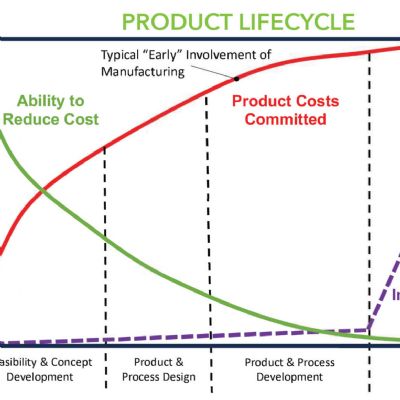 Brad Kuvin
Brad KuvinMicromanage the Right
September 1, 2012Comments
Employees desire and appreciate face-to-face time with their managers. However, they spurn managers who inappropriately observe and control the manner in which they perform their jobs.
Author Thomas Davenport said as much when he summarized in a Bloomberg BusinessWeek article the results of a survey of thousands of employers across the globe. The survey reveals that while effective managers interact with employees at least daily, they also make employees feel comfortable working independently. Somewhat of a paradox, but make it work and you’ll enjoy a productive team of workers satisfied in their roles who will stick around for a long time.
You want employees who see themselves as playing an important role not only in the success of your company, but in the success of your customers. Davenport cites anecdotal data provided by consulting firm Towers Watson regarding the healthcare industry that I think applies to the metalforming industry. Towers Watson interviewed dozens of hospital custodians and separated them into two groups—one group that tended to work without interacting with other hospital staff, and another group who went out of their to interact with patients and visitors.
Asked to define their jobs, those in the first group saw themselves merely as cleaners. However, those in the more interactive group saw themselves as much more. They believed their roles went far beyond cleaning and extended to “playing an important role” in the patients’ and visitors’ experiences. Their supervisors had pushed the right buttons—and perhaps made the right hiring decisions, too.
If you’ve been in a hospital recently, whether as patient or visitor, I bet you’ve experienced this dichotomy amongst the hospital staff. I’ve had incredibly uplifting conversations with numerous non-medical staff—including custodians—while visiting patients. Many of them believe they play a critical role far beyond their job descriptions. And I’m certain those beliefs make more productive employees.
The management trick to all of this, be it a hospital or a metalforming company, is to inspire without over (or micro) managing. Some would say meddling. Remember: Managers are (or should be) rewarded for making other people productive. That’s your measure of success.
Often the line appears fine between micromanaging and accountability, between practicing the “buck stops here” philosophy and the belief that delegating and empowering leads to growth and success. To walk that line and “micromanage the right ,” Davenport says:
“Don’t (just) empower people…foster autonomy…Employees who take intellectual ownership of their jobs are more likely to feel stimulated and engaged and less likely to feel suffocated by managerial attention…Don’t just coach employees…employees benefit from having access to multiple sources of advice, counsel and knowledge, via a confidante or mentor.”
Technologies: Management
Comments
Must be logged in to post a comment. Sign in or Create an Account
There are no comments posted. Management
ManagementDOL Announces Nearly $200 Million Allotted for Registered Ap...
Friday, March 1, 2024
Laurie Harbour, President, Harbour Results, Inc., E707
Wednesday, January 24, 2024
 Podcast
Podcast Management
ManagementMetalForming LIVE 2024: Recruit, Retain, Train
Monday, January 22, 2024
 Webinar
Webinar  Management
ManagementDesign for Manufacturing
Peter Ulintz Friday, October 27, 2023





